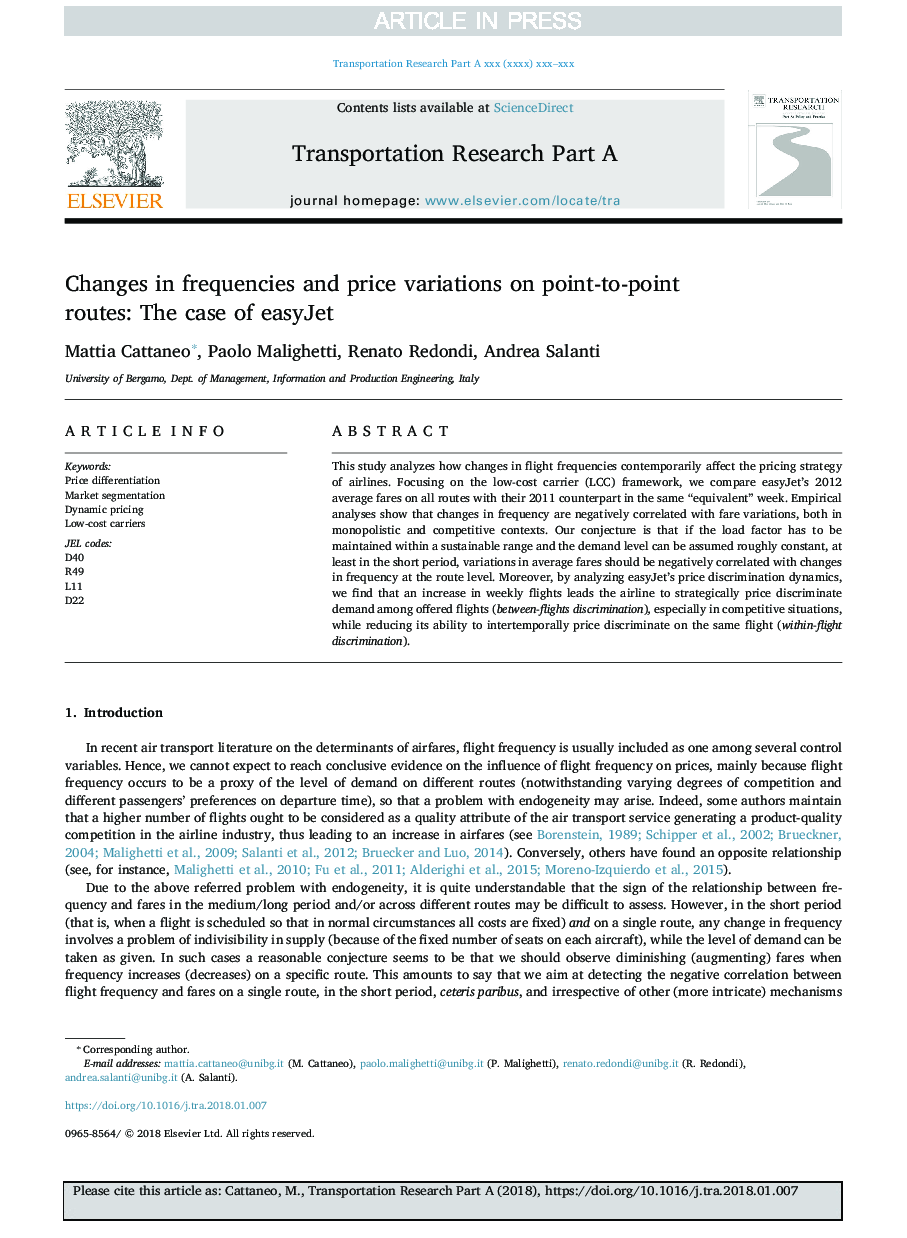| Article ID | Journal | Published Year | Pages | File Type |
|---|---|---|---|---|
| 6780201 | Transportation Research Part A: Policy and Practice | 2018 | 11 Pages |
Abstract
This study analyzes how changes in flight frequencies contemporarily affect the pricing strategy of airlines. Focusing on the low-cost carrier (LCC) framework, we compare easyJet's 2012 average fares on all routes with their 2011 counterpart in the same “equivalent” week. Empirical analyses show that changes in frequency are negatively correlated with fare variations, both in monopolistic and competitive contexts. Our conjecture is that if the load factor has to be maintained within a sustainable range and the demand level can be assumed roughly constant, at least in the short period, variations in average fares should be negatively correlated with changes in frequency at the route level. Moreover, by analyzing easyJet's price discrimination dynamics, we find that an increase in weekly flights leads the airline to strategically price discriminate demand among offered flights (between-flights discrimination), especially in competitive situations, while reducing its ability to intertemporally price discriminate on the same flight (within-flight discrimination).
Related Topics
Physical Sciences and Engineering
Engineering
Civil and Structural Engineering
Authors
Mattia Cattaneo, Paolo Malighetti, Renato Redondi, Andrea Salanti,
